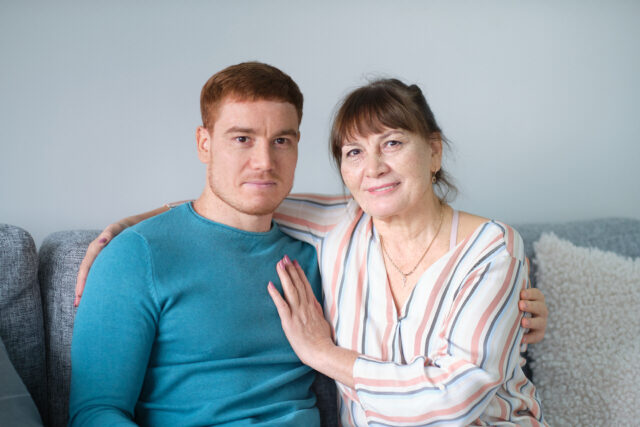Empathy doesn’t announce itself in grandiose ways.

The most meaningful type is shown in the little things we say in everyday conversations. When someone’s feeling overwhelmed, misunderstood, or vulnerable, the way we respond can either make them feel more connected or completely alone. That’s why having a few grounded, emotionally aware phrases on hand can make all the difference. These aren’t rehearsed lines. They’re small changes in language that say, “I’m really here with you.”
1. “That makes a lot of sense.”

This phrase might sound simple, but it carries a lot of weight when someone is second-guessing their emotions. It tells them their experience is valid—that they’re not being irrational or dramatic. In a world where people often feel dismissed or brushed off, hearing this can be grounding.
It’s especially powerful when someone’s gone through something frustrating or complicated. Rather than asking them to explain further or justify their response, you’re meeting them with calm understanding. You’re showing them that their perspective has space in the conversation.
2. “I’m really glad you told me that.”

Opening up can feel incredibly vulnerable, even with people we trust. This phrase immediately reinforces that their honesty was welcomed, not a burden. It reminds them that what they shared isn’t too much, and that you see their openness as a strength. It’s also a subtle way of saying, “You’re safe with me.” When people feel seen without judgement, they’re more likely to keep sharing, which deepens the emotional bond between you.
3. “I can’t fully understand, but I want to.”

This line shows empathy without pretending to have all the answers. You’re not claiming to know exactly what they’re feeling, but you’re willing to sit with it, ask questions, and try to understand. That effort means everything when someone feels isolated in their experience. It’s also a small admission of humility. You’re not making it about you or jumping in with your own stories. You’re saying, “This is your moment, and I’m here to witness it, not overshadow it.”
4. “I’d probably feel the same if I were you.”
 Source: Unsplash
Source: Unsplash Sometimes the most helpful thing you can do is normalise what someone’s feeling. This one doesn’t just show agreement. It actually mirrors their emotions and lets them know they’re not overreacting. It’s a way of saying, “Your feelings make sense, and I see why you’re struggling.”
It’s especially helpful when someone is riddled with guilt or self-doubt. Instead of analysing or pushing them to reframe things, you’re just standing beside them and saying, “I get it.” That shared emotional space is often all someone really needs.
5. “You don’t have to explain it all right now.”

When someone’s hurting or overwhelmed, they might not even have the words for what they’re feeling yet. This relieves the pressure to articulate perfectly, allowing them to breathe and just be where they are. It also sends a strong message: “I’m not going anywhere.” You’re showing patience and emotional presence, which can be far more comforting than any quick reassurance or advice.
6. “You’re allowed to feel this way.”

People are often told, either directly or subtly, that their emotions are too much, too messy, or too inconvenient. This phrase cuts through that. It validates their experience and reminds them there’s no “right” way to feel. Even if their emotions don’t make sense to you, your job isn’t to judge—it’s to acknowledge. Saying this can break the cycle of shame and self-censorship that keeps people bottled up.
7. “Is this something you want to talk through, or would you rather have some space?”

This question offers choice, and that’s incredibly empowering. Rather than assuming someone wants to unpack everything, you’re giving them permission to guide the interaction in a way that feels safe to them. It’s also a calm way of respecting boundaries. Whether they need to talk or just sit in silence, they’ll remember that you offered support without expectation.
8. “I’m here, even if I don’t know exactly what to say.”

People don’t always need perfectly worded comfort—they just need presence. This line communicates that you’re willing to stay with them in their discomfort, even when it’s messy or unfamiliar. It also takes the pressure off you. You’re not expected to fix anything or say something profound. Just showing up matters more than you think.
9. “Take your time—I’m not in a rush.”

There’s something deeply reassuring about being told you don’t have to hurry your emotions. In a world that often demands quick answers and fast healing, this phrase gives someone the gift of time. It creates a quiet container of safety, where they don’t have to perform or compress their story to fit your schedule. That kind of spaciousness is rare, and deeply appreciated.
10. “That sounds really tough. How are you holding up?”

This response validates the difficulty of what they’re going through, while also gently inviting them to share how they’re managing emotionally. It steers the conversation deeper without feeling invasive. By focusing on how they’re coping, rather than what they’re doing to solve the situation, you’re encouraging emotional honesty, not productivity. That distinction matters more than most people realise.
11. “I’m not here to fix it—I just want to support you.”

This one removes pressure from both sides. It tells the other person they don’t need to come up with solutions, and that you’re not there to judge how they’re handling things. You’re simply offering your presence, and that’s enough. It’s a game-changer for people who are used to being “helped” in ways that don’t actually feel helpful. Sometimes, what people want most is just someone to be with them, not someone who tries to fix them.
12. “It’s okay if you’re not okay right now.”

This line validates the struggle without minimising it. It tells someone they don’t have to plaster on a brave face or pretend they’re coping when they’re not. Just hearing that it’s acceptable to not be okay can be an enormous relief. It also gently pushes back against the toxic pressure to be resilient at all costs. You’re giving someone permission to feel what they’re feeling—without apology.
13. “I’m proud of you for sharing that.”

When someone opens up, especially about something heavy, they often feel vulnerable or exposed. Saying this turns that vulnerability into a point of strength. It lets them know their honesty didn’t make things awkward—it made things more real. It’s a subtle way of recognising their courage without centring yourself. You’re not saying “I understand,” you’re saying “I see you, and I respect what it took to say that.”
14. “That must have been so frustrating for you.”

Reflecting someone’s emotional experience back to them helps them feel truly heard. This phrase, in particular, is useful when someone has been dismissed or misunderstood elsewhere. It shows that you’re not just nodding along—you’re absorbing what they’ve shared. Sometimes people don’t even realise how frustrated or hurt they were until someone else says it out loud. In that way, this phrase can offer surprising clarity and relief.
15. “Thanks for trusting me with that.”

This is one of the most respectful ways to respond when someone shares something personal. It acknowledges the vulnerability involved and makes it clear you don’t take their honesty lightly. It’s also a great way to end a heavy conversation with warmth. You’re affirming their courage while closing the loop in a way that feels safe and supportive.




